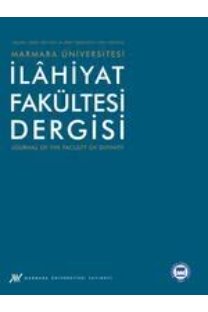Mustafa Ateş, Bir Osmanlı Fakihi: İbn Âbidîn, İstanbul: İSAM, 2022, 400 sayfa.
Mustafa Ateş’in 2019 yılında tamamladığı Son Dönem Osmanlı Fakihlerinden İbn Âbidîn’in Fıkıhçılığı (Reddü’l-Muhtâr Örneği) adlı doktora tezinin bazı tasarruflarda bulunularak neşredilmiş hali olan çalışma Reddü’l-muhtâr isimli eseri özelinde İbn Âbidîn’in mezheb içi fıkıh faaliyetini ve bir haşiye olarak bu eserin sahip olduğu işlevi netleştirmeye çalışır. Çalışma, mezheb sisteminin nasıl bir fonksiyona sahip olduğu hususunu temel bir soru olarak vaz eder. Mezheb, taklid ve ictihad kavramları ekseninde konu sınırlandırması bakımından herhangi bir metodolojiyle kayıtlı kalmaksızın fıkhın çeşitli bölümlerinden seçilmiş yazar tarafından temsil kabiliyeti yüksek olarak nitelendirilen örnekler üzerinden konuya odaklanır. Mezheb müntesibi bir fakih olması yönünü öne çıkararak İbn Âbidîn’in fıkhî ahkâmı tespit etme usulünü tahlil etmeye yoğunlaşır. Reddü’l-muhtâr’da alıntı yapılan kaynaklara olan atıf yoğunluğunu tespit ederek İbn Âbidîn nezdinde muteber kaynak meselesine eğilmesi, İbn Âbidîn nazarında taklit kavramının kapsamını netleştirmeye çalışması ve onun fakihlerin tasnifi hakkındaki görüşlerini ayrıntılı bir şekilde ele alması yönüyle çalışma özgün bir görünüm arz eder. Üç bölümden oluşan çalışma Osmanlı fakihi olmanın anlamını belirginleştirme, kaynak kullanımı açısından İbn Âbidîn’in atıflarının belirli isimler ve eserler üzerinde yoğunlaşmasının gerekçelerini izah etme ve bu açıdan onun tevarüs ettiği fıkıh mirası ile ilişkisini açıklığa kavuşturma yönlerinden sathî kalmış olsa da İbn Âbidîn’in en kapsamlı eseri özelinde fıkhın farklı bölümlerinden seçilen örnekler üzerinden fıkhî mesaisini anlamlandırma ve şerh-haşiye geleneğine ilişkin yapılan olumsuz değerlendirmelere bir haşiye olan Reddü’l-muhtâr’ın taşıdığı işlevi ortaya çıkarma gayesiyle cevap arama noktalarında önemli katkılar sunar.
Anahtar Kelimeler:
Fıkıh, İbn Abidin, Reddü'l-muhtar, Haşiye, Mezheb, Taklid, İctihad
Mustafa Ateş, An Ottoman Jurist: Ibn 'Abidin, Istanbul: ISAM, 2022, 400 pages.
The study, which is a revised version of Mustafa Ateş's doctoral thesis titled "Late Ottoman Jurist Ibn Abidin's Understanding of Fiqh (The Case of Radd al-Muhtâr)" published by making some adjustments, attempts to clarify Ibn Abidin's intra-madhhab jurisprudential activity and the function of this work as a commentary. The study poses the fundamental question of the function of the madhhab system. Without being constrained by any specific methodology in terms of subject limitation, it focuses on the topic through selected examples from various sections of jurisprudence, which are deemed highly representative by the author, with a focus on the concepts of madhhab, taqlid, and ijtihad. By emphasizing Ibn Abidin's affiliation with a madhhab, the study concentrates on analyzing his method of determining legal rulings. The study presents a unique appearance in terms of dealing with the issue of reliable source in the eyes of Ibn Abidin, determining the density of references to the sources cited in Radd al-Muhtâr, trying to clarify the scope of the concept of imitation in the eyes of Ibn Abidin, and discussing his views on the classification of jurists in detail. Although the study, which consists of three parts, is superficial in terms of clarifying the meaning of being an Ottoman jurist, explaining the reasons for Ibn Abidin's citations to focus on certain names and works in terms of resource use, and clarifying his relationship with the fiqh legacy he inherited; in the context of Ibn Âbidîn's most comprehensive work, it provides important contributions in terms of making sense of his fiqh exertion through the examples selected from different parts of the hashiyah and seeking answers to the negative evaluations made about the sharh-hashiyah tradition, with the aim of revealing the function of Radd al-Muhtâr, which is an hashiyah.
Keywords:
Fiqh, Ibn 'Abidin, Radd al-Muhtar, Hashiya, Madhhab, Taqlid, Ijtihad,
- ISSN: 1302-4973
- Başlangıç: 1963
- Yayıncı: Marmara Üniversitesi
Sayıdaki Diğer Makaleler
Osmanlı Türkçesine Tercüme Edilen Siyaset Düşüncesi Eserlerinin Tercüme Usul ve Tasarrufları
İslam Hukukunda Garara Rağmen Akdin Sürdürülme Esasları
Mustafa Ateş, Bir Osmanlı Fakihi: İbn Âbidîn, İstanbul: İSAM, 2022, 400 sayfa.
